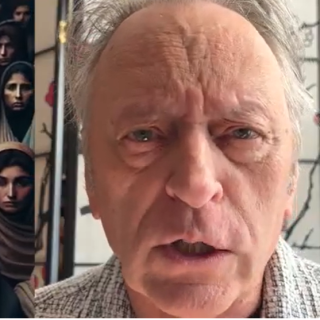Advertisement
“I never thought I would come back to this life” - Forced to Flee Again
Link: http://bit.ly/MaurArrestshttp://bit.ly/MaurArrests
Cleveland, OH – The Thomson Reuters Foundation just published a ground-breaking report from northwest Africa that confirms a horrific fact: under President Trump, the U.S. is deporting Black Mauritanians to statelessness and torture. The Trump Administration is doing this despite being well aware--via reports from its own State Department, CIA, and U.S. Trade Representative--that the country is a human rights backwater. Black Mauritanians in particular are vulnerable to extortion, slavery, human trafficking, or worse. After fleeing genocide and land-grabbing in Mauritania two decades ago, thousands of Black Mauritanians came to the United States, often settling in Ohio, and built their lives here. Now, due to a change in policy under President Trump, long-term U.S. residents with families and jobs are being sent back, alone, and immediately arrested by the country that persecuted them. They are held in some of the world’s most notorious jails, until they are able to escape to another country to save their lives. Reporter Nellie Peyton interviewed individuals living in hiding in Mauritania, as well as those living “stateless” in other countries, to produce this important piece. Reporting this story, and speaking out as a former deportee, is a truly courageous act. Numerous journalists and activists who have dared to expose human rights violations by the Mauritanian government have been arrested and remain detained indefinitely. Peyton begins her article with the story of “Mo”: Mo had nothing but a set of jail clothes and the name of a distant cousin when he boarded the deportation flight from the United States to Mauritania, the African country he had fled. After more than 20 years he was returning to the scene of childhood trauma - an Islamic republic on the edge of the Sahara where members of black ethnic groups, like him, have suffered decades of slavery and persecution under a light-skinned elite. The plane descended over desert, and his fears were realized. Upon arrival in the capital, Nouakchott, he was arrested and taken to jail, where he remained for two weeks until his family paid a bribe to free him. “I never thought I would come back to this life,” said the 45-year-old, identified here by a nickname for his protection, from his cousin’s house, where he hid for five months before fleeing the country again. Mo had a good job in Ohio and had recently bought a house with his American wife where their children played basketball in the backyard. Now he sat in a dark room every day on his cell phone, afraid to go outside for fear of arrest. Thousands like Mo sought refuge in the United States after a 1989 conflict in which black Mauritanians were stripped of their citizenship and expelled. Longstanding U.S. policy held that even those denied refugee status could remain. Now they are being deported as part of an immigration crackdown under President Donald Trump. Because Mauritania does not recognize their citizenship, interviews suggest dozens have been interrogated, detained and forced to hide.The Trump Administration has increased deportations to this nation by more than 1000%, putting pressure on Mauritania to accept the return of people that they do not even consider to be citizens. However, once these individuals arrive in Mauritania, they are once again in the hands of their persecutors. Mo’s treatment after being deported to Mauritania--arrest, interrogation, and extortion--is exceedingly typical. Explaining how this all came about, Peyton continues with the story of Mo:
People like Mo relied on translators to file their asylum applications in the United States, and many were denied for lack of credibility or documents, lawyers said. They were allowed to stay and simply monitored by ICE - until late last year. “I knew it was coming. They were getting everybody,” said Mo in October, wearing the same clothes he had put on for work the morning ICE picked him up outside his house in May. Under pressure from the Trump administration, the Mauritanian embassy started issuing travel permits, “laissez-passers”, so its citizens could be sent back, lawyers said. But when Mo presented his in Mauritania, he was told it was not proof of citizenship and that he had no legal rights there, he told the Thomson Reuters Foundation. “They (the authorities) said anyone can make this,” said Mo, waving the flimsy document typed up on printing paper. Mauritania’s dusty streets are full of checkpoints and police, and not having papers puts one at constant risk of arrest, locals said. Stressed and afraid, in November Mo paid someone to smuggle him out.
Earlier this year, Reveal News published a piece regarding the arrest of another deportee from the United States. Internationally-acclaimed human rights advocate Biram Dah Abeid was among the first to speak up about what is happening, filing an affidavit about the arrests with the U.S. Government. Abeid himself was arrested in August 2018 by the Mauritanian government and remains in jail today--confirming once again what we have been saying. WHAT YOU CAN DO: African Immigrant Relief, the Ohio Immigrant Alliance, and Cleveland Jobs With Justice are raising money for the legal defense of Black Mauritanians at risk of deportation and abuse. Please donate here, or text to donate ATHOME to 44321. Two dozen Mauritanian men are currently detained in Ohio immigration jails, some for longer than six months, and many other men and women are in imminent danger of arrest and deportation. To understand U.S. deportation policy to Mauritania, see this short overview. To learn more about human rights abuses in Mauritania today, review this outline of recent events from the Ohio Immigrant Alliance.
Thomson Reuters Foundation is the charitable arm of Thomson Reuters that covers humanitarian news, women's and LGBT+ rights, human trafficking, property rights, and climate change. Visit http://news.trust.org for more.
Follow the Ohio Immigrant Alliance on Twitter @tramontela



